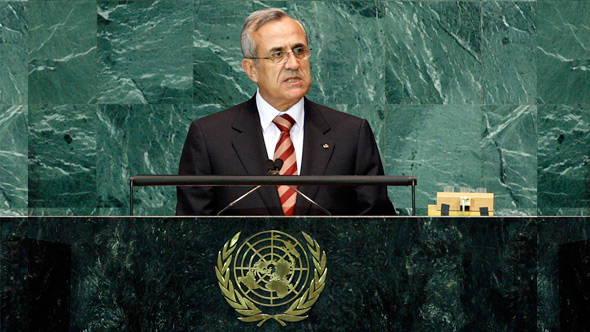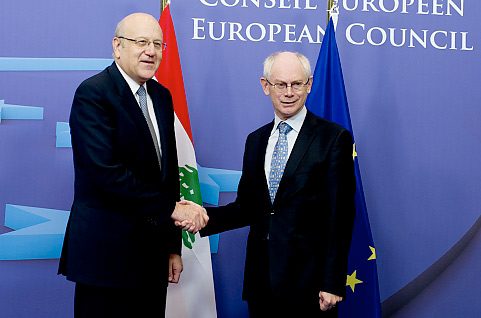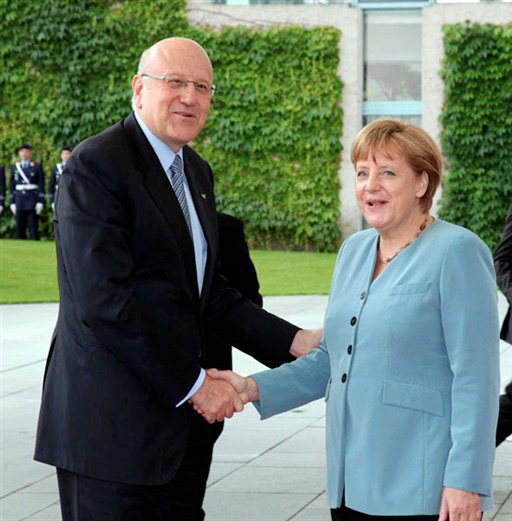Foreign Policy: Overview of Lebanese Foreign Relations 2012-2013
As a tiny country, Lebanon has never tried to inflate its own importance, and yet it has appeared in the spotlight of regional and even global politics on numerous occasions in the last 60 years.

Foreign Policy: Overview of Lebanese Foreign Relations 2012-2013
As a tiny country, Lebanon has never tried to inflate its own importance, and yet it has appeared in the spotlight of regional and even global politics on numerous occasions in the last 60 years.
The Lebanese Republic’s foreign policy has been shaped by conflict with Palestine since gaining independence in 1943. With the first war in Palestine in 1948, when Israel was founded, a mass exodus of Palestinian refugees reached neighboring Lebanon, Syria, Jordan and Egypt. Like most Arab states, Beirut never entered into diplomatic relations with Tel Aviv and due to the Lebanon war in the summer of 2006, both countries remain technically at war as a UN-brokered armistice keeps the borders quiet.
Lebanon has nonetheless never had any major issues within the international community and the high presence of U. S. businesses such as Citibank, Microsoft or Cisco Systems is proof that Beirut can maintain friendly ties with Washington, despite its hostilities with the southern neighbor Israel…
More waves of refugees hit Lebanon in the wake of the six-day war in 1967 and the October war in 1973. While Beirut only partially participated in the two Arab-Israeli conflicts, the country was powerless to stop the Israeli invasion in 1982. Indeed, it was initially supported by some Lebanese groups in order to disband Yasser Arafat’s PLO, which had established itself in Lebanon and was threatening the domestic balance of powers.
Contrary to many other Middle Eastern states, Lebanon refrained from spending the bulk of its national budget on military hardware. “Our weakness is our strength,” the Lebanese used to say on the international stage of diplomacy, meaning the tiny country thought that no outside powers would dare to attack it for fear of triggering a global outrage.
Lebanon has nonetheless never had any major issues within the international community and the high presence of U. S. businesses in Lebanon such as Citibank, Microsoft or Cisco Systems is proof that Beirut can maintain friendly ties with Washington, despite its hostilities with the southern neighbor Israel, a staunch ally of the U. S..
Lebanese Foreign Policy in Europe

In Europe, Lebanon has close ties to France, its former colonial master. Paris is proud of having a huge Lebanese community at home and of running several higher education institutions in Beirut. Many Lebanese learn the official languages of Arabic and French in parallel during their early years of childhood.
Berlin has managed to increase its influence in Beirut over the last 20 years as German intelligence services have brokered a number of hostage and prisoner swaps between Hezbollah and Israel. In addition, Berlin convinced Tel Aviv to cease its sea blockade of Lebanon in the wake of the 2006 war and since then German marine forces have been protecting the Lebanese coast under a United Nations mandate.
Lebanon has been enjoying close ties with the Gulf states, especially in the field of economic co-operation.
According to Nabil Itani, Chairman of Investment Development Authority of (IDAL), “the compounded annual growth rate of FDI flows for the last 4 years stood at 16% and we are one of the largest recipient of FDI in the region if you could exclude oil rich economies, which really highlights the resilience of our economy. Lebanon is also a signatory of multiple investment treaties that protect foreign investors (53 bilateral Agreements for the Promotion and Protection of Investments). The major consequences of political risk is its impact on local and external demand for local goods which can then have an impact on the profitability of a company.”
the compounded annual growth rate of FDI flows for the last 4 years stood at 16% and we are one of the largest recipient of FDI in the region if you could exclude oil rich economies, which really highlights the resilience of our economy….
Relations with Syria remain a rollercoaster affair. Damascus has always regarded Lebanon as part of a “Greater Syria”, a term Lebanese people do not really like to hear. However, most Lebanese families have personal and business ties and relationships with Syria. Syria has also generously granted people from the Levant state refuge whenever Lebanon has been hit by war.
Dr. Makram Sader, Chairman of Association of Banks in Lebanon admits that Syria issue is a major risk. He says “externally, the events in Syria are the most serious threat for us. We manage in 2011, despite those events to have good economic growth. But we start feeling the negative impact of events in Syria in the area of exports, transit of goods, etc.’
Dr. Sader adds, “our major risk is to see security deterioration around us and impacting the political stability in the country. We are also afraid of the deterioration of the political and security situation around us than of the financial situation. We are used to operate under tough conditions. We know how to handle risks related to unstable environments, but we hope that what is going on in Syria will not impact the security situation in Lebanon. That is the only thing we cannot fully control ourselves, and our country relies on the wisdom of our ruling class to avoid any Syrian involvement from the Lebanese side.”

Syria-Lebanon Foreign Relations
During one of his visits to Damascus, the late Prime Minister Rafic Hariri wrote in a guest book when visiting a factory “We are one nation in two different countries”, a statement which the Lebanese people would readily subscribe to today.
Relations between both countries deteriorated when the popular PM and billionaire Hariri was killed in a car bomb attack on Valentine’s Day 2005. The masses quickly suspected the regime in Damascus as being responsible for the attack, but Hezbollah later said it had proof that Israel was behind the plot. Syrian forces left Lebanon shortly after this and in the summer of 2006, Hezbollah forces attacked Israel from Lebanon as the Syrian army was no longer providing a deterrent.
Today, relations between Beirut and Damascus are again under strain. The so-called civil war in Syria has triggered an exodus of civilian refugees from Syria into Lebanon. As the outcome of the power struggle between incumbent President Bashar Al-Assad and forces of the “Free Syrian Army” remains uncertain, the future of the Beirut-Damascus foreign relations also remains in limbo.